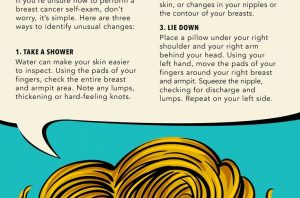Alright, let’s talk about this whole “Black women are 41% more likely to die from breast cancer than Caucasian women” situation. Now, before I get into this, I want to make it clear that BWS have nothing but respect for Sara Sidner and her bravery in sharing her diagnosis with the world. Cancer is a beast of a disease, and anyone who has to face it deserves nothing but support and compassion.
But let’s address the elephant in the room here. Why are black women more likely to die from breast cancer than their Caucasian counterparts? It’s a question that needs to be answered, and it’s a problem that needs to be addressed.
First of all, let’s talk about the systemic issues at play here. Black women are more likely to live in poverty and have less access to quality healthcare. This means that they may not have the same resources available to them for early detection and treatment of breast cancer. Additionally, there are disparities in the quality of care that black women receive compared to white women. Studies have shown that black women are less likely to receive timely and appropriate care for their breast cancer, which can lead to poorer outcomes.
Furthermore, there are cultural and societal factors at play as well. There are still stigmas and taboos surrounding breast cancer in many black communities, which can lead to delayed detection and treatment. Black women may also be more likely to have distrust of the medical system, stemming from a long history of mistreatment and discrimination in healthcare. This can lead to a reluctance to seek out and trust medical advice, which can further exacerbate the disparities in breast cancer outcomes.
So, what do we do about this? How do we address this issue and work towards better outcomes for black women with breast cancer?
First and foremost, we need to address the systemic issues that are contributing to these disparities. This means increasing access to quality healthcare for all, regardless of race or socio-economic status. It means investing in programs and initiatives that aim to improve early detection and treatment for breast cancer in underserved communities. It means addressing the cultural and societal factors that may be contributing to delayed diagnosis and treatment.
Additionally, we need to ensure that the medical community is educated and trained on how to provide culturally competent care to all patients, regardless of their race or background. This means understanding and addressing the unique needs and challenges that may be present in different communities, and working towards providing the same level of care to everyone.
Ultimately, we need to work towards a healthcare system that is equitable and just for all. No one should be at a higher risk of dying from breast cancer simply because of their race. We need to stand up and demand better for all women, regardless of their race or background.
In closing, BWS would like to reiterate its support and admiration for Sara Sidner and anyone else who is facing a cancer diagnosis. It’s a battle that no one should have to face alone, and it’s a battle that we should all be fighting to end. Let’s work towards a world where race is not a factor in breast cancer outcomes, and where all women have an equal chance at survival.
Who am I not to fight?
FOLLOW US ON SLAYLEBRITY TO KEEP UP WITH BWS





